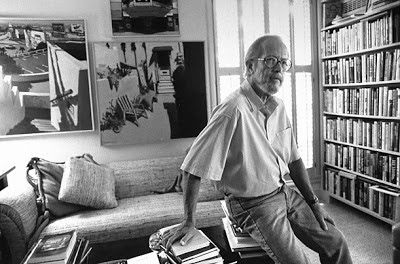I'm a compulsive reader. I read everything and I read all the time. I suspect it started when I was in the fifth grade and I spent my breakfast reading the shredded wheat box. I even read the dividers that separated the rows of three biscuits. Nabisco sponsored the television program
Sargent Preston of the Yukon and my hero was all over the box and dividers. That's how I ended up owning one square inch in the Klondike. Darn, I wish I still had my deed.

You'll be pleased to know I've graduated from cereal boxes to books. First the Hardy Boys, and then mass paperbacks. I was a junior in high school when I discover nonfiction with Theodore White's
The Making of the President 1960. College introduced me to classics.
In adulthood, I wandered books stores and paperback racks looking for my next read. Bestsellers lists had already down-selected which books got prominent display, and I usually picked by author or back cover copy.
The publishing world has changed. Bookstores are becoming rarer, yet there are tens of thousands of more books available. The shelf-life of a book has been extended well beyond presence on a bestseller list. Electronic books are increasingly taking over fiction and narrative prose. Old book selection tools like magazines and newspapers are withering. Literary reviews are being displaced by reader reviews.

So how does a person pick their next book to read? For me, it's easy. I carry my Kindle with me almost everywhere. Writing has crowded out my reading time, so I read in line at the airport, in my doctor's lobby, in the car as my wife runs into a store, or while eating breakfast or lunch. I also have my Kindle with me when I watch television. It's always around when I use my computer. Why? It has to do with how I pick my next book to read. Whenever I hear or read about a book that sounds interesting, I immediately download a sample onto my kindle. I do this while talking to friends, watching television, surfing the Internet, attending book events, or when reading a periodical. After I finish a book, I metaphorically thumb through my samples, usually reading a chapter or two, then select my next book. At any point in time, I probably have twenty books queued up.
Electronic reading devices have changed the publishing industry and reading habits. It has also changed the way we chose books.
- Back copy is less important than the opening of the book
- Bestseller lists mean less than frequent mention on broadcast and cable outlets
- Social media builds name recognition
- Word-of-mouth is even more powerful
This means emerging authors have tools to compete with famous authors. More important sales can occur a considerable time after a promotional event. Book sales are now a long-haul business. Someone might download a book sample weeks, or even months before they make a purchase decision.
In fact, you might consider downloading samples for these books.
Happy reading.














.jpg)













_Full_page_bleed.jpg)


.jpg)









